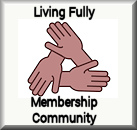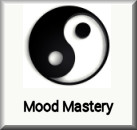Learning to ask great questions:
One of the most important parts of being a partner is to be in tune with your partner. this means that you need to know them. This is an ongoing process. Do you notice that when you first met until now that both you and your partner have changed over time. You may have adjusted your roles together, you may have re-thought your priorities or your values, you may have become more sensitive in different areas of your relationship and you may have developed one part of your personality compared to others, resulting in a change. We are continually influenced by our experiences in life which means we are constantly changing. Our current challenges in our circumstances change us. What we focus on, changes our thinking. And on I could go. Some couples believe they “know” each other and cease to have a sense of curiosity. The above reasons means that knowing our partner is an ongoing project. To do this well, you need to be able to ask good questions.
Asking good questions goes back to our school days with the open ended questions using how, what, who and why. The why is kind of iffy as it will often provoke defensiveness in your partner if they become triggered about the topic. So rather then asking why are you thinking that, you can ask, how did you come to think that or better yet, Tell me how you got there. Using stems of sentences such as tell me or share with me are good ones for couples. Make sure you are focussing on their experience and not just the facts of the matter so that they can share deeply with you. For instance if you are having a dialogue about a work issue, there are facts to share and then there is your experience or how it made you feel. People who ask great questions know they need to ask follow-up questions to flesh out what is really going on. Even the phrase- tell me more works. When you don’t really get what is going on – don’t just nod but ask a follow up question or paraphrase what you think you heard and then listen as they correct you or add to what they originally said. Make sure you are not fixing the situation – that is not the object of the dialogue most of the time. It is about being known and understood by the other. Masters of relationships know how to course correct when they begin to get off track in a dialogue. Develop the skills of being able to do this. Have statements at the ready such as “I wish I had not said that because it took away from what you were trying to tell me – can we go back?” Some use humour as a distraction and are able to go back and ask another question that works to course correct. Of course we know from research that holding your partner’s hand works to bring down your negative physiological responses and creates some safety. This too can help you course correct. Also be okay with silence, especially if your partner is more introverted. They will sometimes need to go inside and figure out what is going on. Be there with them and wait until they are able to express an answer. Another good question when you can see there is something distressing your partner but they can’t quite pin point the reason, asking “if you had to guess” can sometimes help them to find their answer to the distress. You need to get good at this. Go forth and be wonderful today!





